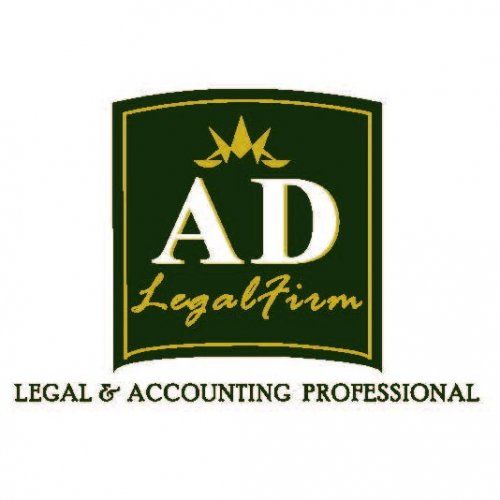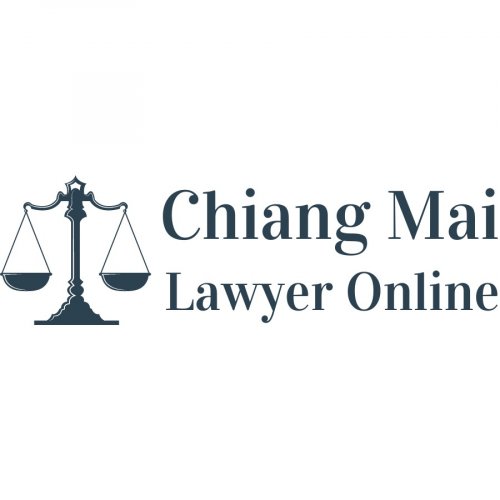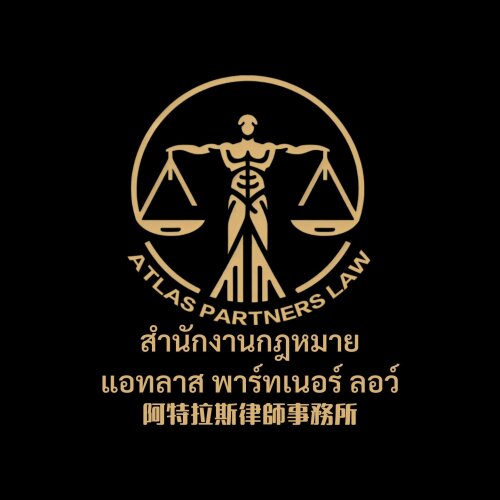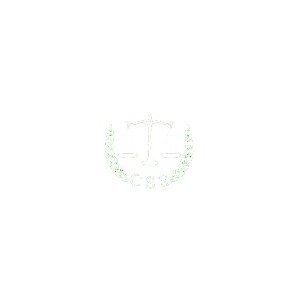1. เกี่ยวกับกฎหมายภาษีในเชียงใหม่, ประเทศไทย
เชียงใหม่ปฏิบัติตามกฎหมายภาษีของประเทศไทยทั้งหมด ตามกรอบกฎหมายระดับชาติและระเบียบข้อบังคับท้องถิ่นที่บังคับใช้ในพื้นที่ จังหวัดเชียงใหม่จึงต้องปฏิบัติตามทิศทางทั่วไปของกรมสรรพากรและหน่วยงานที่เกี่ยวข้อง
หน่วยงานหลักด้านภาษีคือกรมสรรพากร ซึ่งดูแลภาษีเงินได้ ภาษีมูลค่าเพิ่ม และภาษีอื่นๆ ที่เรียกเก็บในระดับประเทศ ในขณะเดียวกันบางรายการภาษีท้องถิ่นจะถูกเรียกเก็บโดยองค์กรปกครองท้องถิ่น
ในเชียงใหม่ ผู้เสียภาษีมักต้องรับผิดชอบภาษีท้องถิ่นบางรายการเช่น ภาษีป้าย และบางรายการของภาษีที่ดินและสิ่งปลูกสร้างภายใต้กรอบกฎหมายภาษีที่ดินและสิ่งปลูกสร้าง
2. ทำไมคุณอาจต้องการทนายความ
ต่อไปนี้เป็นสถานการณ์เฉพาะเจาะจงที่อาจต้องการความช่วยเหลือด้านภาษีในเชียงใหม่
- ฉันกำลังถูกตรวจสอบภาษีโดยกรมสรรพากรที่เชียงใหม่ และต้องการทนายความเพื่ออธิบายสิทธิ์และยื่นคำชี้แจงอย่างถูกต้อง
- ฉันมีข้อสงสัยในการคำนวณภาษีมูลค่าเพิ่มหรือภาษีเงินได้ และต้องการทนายความช่วยตรวจสอบรายการหักค่าลดหย่อนที่ถูกต้อง
- บริษัทมีข้อผิดพลาดในการยื่นภาษีและต้องการประสานงานกับหน่วยงานสรรพากรพื้นที่เชียงใหม่ เพื่อแก้ไขข้อผิดพลาดอย่างมีประสิทธิภาพ
- มีข้อพิพาทเรื่องประเมินภาษีที่ดินและสิ่งปลูกสร้าง ที่อาจส่งผลกระทบต่อค่าบำรุงท้องถิ่นในเชียงใหม่
- ต้องการข้อกำหนดประนอมหนี้ภาษี หรือขอคำแนะนำในการต่อรองกับเจ้าหน้าที่ภาษีในพื้นที่
- ต้องการวางแผนภาษีสำหรับธุรกิจใหม่ของฉันในเชียงใหม่ เพื่อให้สอดคล้องกับกฎหมายและลดความเสี่ยงทางภาษี
3. ภาพรวมกฎหมายท้องถิ่น
กฎหมายภาษีที่ดินและสิ่งปลูกสร้าง พ.ศ. 2562 คือกรอบหลักสำหรับภาษีที่ดินและสิ่งปลูกสร้างที่มีผลบังคับใช้ทั่วประเทศ ซึ่งเชียงใหม่อยู่ภายใต้การบังคับใช้นี้ด้วย
ภาษีมูลค่าเพิ่ม พ.ศ. 2535 เป็นภาษีระดับชาติที่มีการบังคับใช้อย่างไร้ขอบเขตพื้นที่ และกำหนดให้ผู้ประกอบการที่มีรายได้ถึงเกณฑ์ต้องยื่นแบบและชำระภาษี
ข้อบัญญัติเทศบาลนครเชียงใหม่ เรื่องภาษีป้าย เป็นกรอบท้องถิ่นที่กำหนดภาษีสำหรับป้ายและสื่อโฆษณาในพื้นที่เมืองเชียงใหม่ มีการปรับปรุงและตีความตามสถานการณ์ท้องถิ่นอย่างต่อเนื่อง
อ้างอิงแนวคิดทางกฎหมาย: ภาษีที่ดินและสิ่งปลูกสร้างเป็นกรอบภาษีระดับชาติ ที่บังคับใช้ทั่วประเทศ และภาษีป้ายเป็นภาษีท้องถิ่นที่ดำเนินการโดยเทศบาลในพื้นที่จังหวัดเชียงใหม่
สำหรับรายละเอียดเพิ่มเติม ควรตรวจสอบแหล่งข้อมูลทางการ เช่น กรมสรรพากรและกระทรวงการคลัง เพื่อดูข้อมูลล่าสุดเกี่ยวกับภาษีที่ดินและสิ่งปลูกสร้าง ภาษีมูลค่าเพิ่ม และข้อบังคับท้องถิ่นที่เกี่ยวข้อง
4. คำถามที่พบบ่อย
อะไรคือเหตุผลหลักที่ฉันควรจ้างทนายความด้านภาษีในเชียงใหม่?
ทนายความด้านภาษีช่วยจำแนกข้อกฎหมายที่ซับซ้อน และอธิบายสิทธิ์ของคุณต่อกรมสรรพากรได้ ช่วยเตรียมเอกสารและยื่นคำชี้แจงได้อย่างถูกต้อง
อย่างไรฉันจะเตรียมเอกสารสำหรับยื่นภาษีที่เชียงใหม่อย่างมีประสิทธิภาพ?
รวบรวมแบบฟอร์ม ภ.พ.ง.ด., ใบเสร็จรับเงิน และเอกสารสนับสนุนการหักลดหย่อน ตรวจสอบความสอดคล้องของข้อมูลกับบัญชีและสรรพากร
เมื่อไหร่ที่ฉันควรยื่นแบบภาษีเงินได้บุคคลธรรมดา?
กำหนดเวลายื่นภาษีเงินได้บุคคลธรรมดาเป็นประจำทุกปี ตามประกาศของกรมสรรพากร การล่าช้าอาจนำไปสู่ค่าปรับและการตรวจสอบเพิ่มเติม
ที่ไหนฉันสามารถยื่นแบบภาษีในเชียงใหม่?
สามารถยื่นผ่านระบบอิเล็กทรอนิกส์ของกรมสรรพากร หรือที่สำนักงานสรรพากรพื้นที่ในจังหวัดเชียงใหม่ หากต้องการความช่วยเหลือด้านภาษาและเอกสาร
ทำไมภาษีที่ดินและสิ่งปลูกสร้างจึงมีความสำคัญกับผู้ถือครองอสังหาริมทรัพย์ในเชียงใหม่?
ภาษีนี้มีผลโดยตรงต่อค่าใช้จ่ายในการถือครองอสังหาริมทรัพย์ และอาจมีการปรับปรุงอัตราภาษีตามมูลค่าที่ดินและสิ่งปลูกสร้าง
สามารถขอประนอมหนี้ภาษีได้หรือไม่ในเชียงใหม่?
สามารถยื่นขอประนอมหนี้ภาษีได้ผ่านหน่วยงานภาษีที่เกี่ยวข้อง พร้อมให้ข้อมูลรายได้และสถานการณ์ทางการเงิน เพื่อพิจารณาเงื่อนไขการชำระ
ควรปรึกษาทนายความภาษีเมื่อใด?
ควรปรึกษาทันทีเมื่อมีข้อสงสัยในการคำนวณภาษี การยื่นแบบ หรือเมื่อถูกสั่งเรียกค้นข้อมูลภาษี เพื่อป้องกันข้อผิดพลาดที่อาจนำไปสู่การเรียกเก็บเพิ่ม
ฉันต้องการคำอธิบายคำศัพท์ทางภาษีที่ใช้อย่างไรบ้าง?
คำศัพท์พื้นฐาน เช่น ภาษีเงินได้บุคคลธรรมดา (PIT), ภาษีมูลค่าเพิ่ม (VAT), ภาษีที่ดินและสิ่งปลูกสร้าง (LBT/Land & Building Tax) และหัก ณ ที่จ่าย ควรทำความเข้าใจจากแหล่งข้อมูลราชการ
ฉันควรเปรียบเทียบทนายความอย่างไร
เปรียบเทียบจากประสบการณ์ในคดีภาษีเชียงใหม่ ผลงานที่ผ่านมา ความชัดเจนในการสื่อสาร และค่าใช้จ่ายที่โปร่งใส เพื่อให้คุณได้คำแนะนำที่เหมาะสม
ฉันจะตรวจสอบสถานะการยื่นภาษีได้อย่างไร
ตรวจสอบสถานะผ่านระบบออนไลน์ของกรมสรรพากร หรือสอบถามผ่านผู้ให้บริการภาษีที่คุณจ้าง เพื่อรับการอัปเดตสถานะและเอกสารที่เกี่ยวข้อง
คุณสมบัติที่ทนายภาษีในเชียงใหม่ควรมีคืออะไร
ควรมีกลุ่มทักษะด้านกฎหมายภาษี ความรู้เรื่องภาษีระดับประเทศและท้องถิ่น และประสบการณ์การสื่อสารกับหน่วยงานราชการในจังหวัดเชียงใหม่
ความแตกต่างระหว่างทนายภาษีกับที่ปรึกษากฎหมายทั่วไปคืออะไร
ทนายภาษีมีความชำนาญเฉพาะด้านภาษีและการต่อสู้คดีภาษี ในขณะที่ที่ปรึกษากฎหมายทั่วไปอาจไม่มีความเชี่ยวชาญเฉพาะทางเท่า
5. ทรัพยากรเพิ่มเติม
- กรมสรรพากร (Revenue Department) - แหล่งข้อมูลภาษีเงินได้ ภาษีมูลค่าเพิ่ม และภาษีอื่นๆ rd.go.th
- กระทรวงการคลัง (Ministry of Finance) - มาตรการนโยบายภาษีและแนวทางการจัดเก็บ mof.go.th
- ราชกิจจานุเบกษา (Official Government Gazette) - พระราชบัญญัติและระเบียบข้อบังคับภาษี ratchakitcha.soc.go.th
6. ขั้นตอนถัดไป
- ประเมินสถานการณ์ภาษีปัจจุบัน ระบุชนิดภาษีที่เกี่ยวข้องและประเด็นที่ต้องแก้ไข ใช้เวลา 1-3 วัน
- รวบรวมเอกสารสำคัญ เช่น ใบเสร็จรับเงิน ภ.พ.ง.ด. และเอกสารประกอบการหักลดหย่อน ใช้เวลา 3-7 วัน
- นัดปรึกษาทนายความภาษีที่เชียงใหม่ เพื่อวางแผนกลยุทธ์และยุทธวิธีทางกฎหมาย ใช้เวลา 1-2 สัปดาห์
- ปรับปรุงเอกสารและแบบฟอร์มภาษี ตามคำแนะนำของทนายความ ก่อนส่งให้กรมสรรพากร ใช้เวลา 1-3 สัปดาห์
- ยื่นเอกสารและติดตามสถานะ ผ่านระบบอิเล็กทรอนิกส์หรือสำนักงานสรรพากรพื้นที่เชียงใหม่ ใช้เวลา 1-4 สัปดาห์
- ติดตามผลการดำเนินการ ตรวจสอบการรับชำระหนี้หรือการอุทธรณ์ หากจำเป็น สามารถขอคำปรึกษาเพิ่มเติม
- ทบทวนแผนภาษีในระยะยาว เพื่อป้องกันปัญหาซ้ำซ้อนในอนาคต และจัดทำแผนภาษีที่เหมาะสมสำหรับธุรกิจที่ตั้งในเชียงใหม่
Lawzana ช่วยคุณค้นหาทนายความและสำนักงานกฎหมายที่ดีที่สุด ใน เชียงใหม่ ผ่านรายชื่อผู้เชี่ยวชาญด้านกฎหมายที่มีคุณสมบัติเหมาะสมที่คัดสรรและตรวจสอบล่วงหน้า แพลตฟอร์มของเรานำเสนอการจัดอันดับและโปรไฟล์โดยละเอียดของทนายความและสำนักงานกฎหมาย ช่วยให้คุณเปรียบเทียบตามสาขากฎหมาย รวมถึง ภาษี ประสบการณ์ และความคิดเห็นของลูกค้า
แต่ละโปรไฟล์ประกอบด้วยคำอธิบายเกี่ยวกับสาขากฎหมายของสำนักงาน รีวิวจากลูกค้า สมาชิกในทีมและหุ้นส่วน ปีที่ก่อตั้ง ภาษาที่พูด ที่ตั้งสำนักงาน ข้อมูลการติดต่อ การมีตัวตนบนโซเชียลมีเดีย และบทความหรือแหล่งข้อมูลที่เผยแพร่ สำนักงานส่วนใหญ่บนแพลตฟอร์มของเราพูดภาษาอังกฤษและมีประสบการณ์ทั้งในเรื่องกฎหมายท้องถิ่นและระหว่างประเทศ
ขอใบเสนอราคาจากสำนักงานกฎหมายชั้นนำ ใน เชียงใหม่, ประเทศไทย — รวดเร็ว ปลอดภัย และไม่ยุ่งยาก
ข้อจำกัดความรับผิดชอบ:
ข้อมูลที่ให้ไว้ในหน้านี้มีวัตถุประสงค์เพื่อเป็นข้อมูลทั่วไปเท่านั้นและไม่ถือเป็นคำแนะนำทางกฎหมาย แม้ว่าเราจะพยายามตรวจสอบความถูกต้องและความเกี่ยวข้องของเนื้อหา แต่ข้อมูลทางกฎหมายอาจเปลี่ยนแปลงได้ตามกาลเวลา และการตีความกฎหมายอาจแตกต่างกันไป คุณควรปรึกษาผู้เชี่ยวชาญด้านกฎหมายที่มีคุณสมบัติเหมาะสมเพื่อขอคำแนะนำเฉพาะสำหรับสถานการณ์ของคุณเสมอ
เราปฏิเสธความรับผิดทั้งหมดสำหรับการกระทำที่ทำหรือไม่ทำตามเนื้อหาในหน้านี้ หากคุณเชื่อว่าข้อมูลใดไม่ถูกต้องหรือล้าสมัย โปรด contact us และเราจะตรวจสอบและแก้ไขตามความเหมาะสม

















